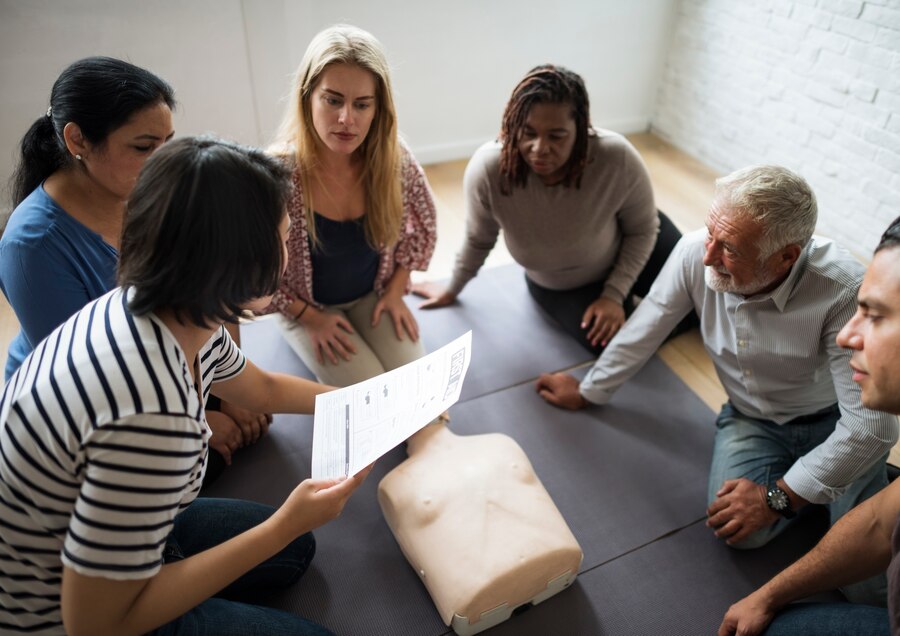Mental health is an essential aspect of our well-being, yet it’s often overlooked in many communities. Creating a robust mental health support system in your community can make a significant difference in the lives of those struggling with mental health challenges. Whether you are looking to start a new initiative or strengthen an existing one, building a mental health support system requires commitment, empathy, and strategic planning. In this blog post, we will guide you through the process of establishing a mental health support system in your community and highlight the benefits it can bring.
Why a Mental Health Support System is Important
A mental health support system can help individuals deal with stress, anxiety, depression, and other mental health issues. It is a safe space where people can find understanding, care, and resources. When a community has an established mental health support system, it fosters an environment of support and resilience, ensuring that individuals do not have to face mental health challenges alone.
Steps to Building a Mental Health Support System in Your Community
1. Understand the Needs of Your Community
Before you begin creating a mental health support system in your community, it’s crucial to understand the specific needs of your community members. Conduct surveys, host town hall meetings, or interview local organizations to identify mental health issues affecting your community. Is there a high level of anxiety among teenagers? Are seniors struggling with loneliness and depression? By understanding the unique needs of your community, you can tailor the support system to provide effective help.
2. Foster Collaboration with Local Organizations
Building a mental health support system in your community doesn’t mean you have to do it all alone. Reach out to local healthcare providers, schools, nonprofits, and religious organizations to collaborate and share resources. Partnering with these groups can help create a wider-reaching support system that benefits more people. Organizations such as counseling centers, youth groups, or even local businesses can play key roles in offering services, hosting events, or providing funding.
3. Establish Support Groups and Peer Networks
Support groups are a vital element of any mental health support system. These groups provide a space for individuals with similar struggles to come together, share their experiences, and offer advice or encouragement. Encourage the formation of peer networks where people can connect with others who understand their challenges. Support groups can be in-person or online, depending on your community’s preferences and needs.
4. Provide Access to Mental Health Professionals
A vital component of any mental health support system is access to professional help. Whether through private practitioners, counseling centers, or telehealth options, ensure that your community members have access to licensed mental health professionals. Organize community events where mental health professionals provide free consultations or hold workshops on managing stress, anxiety, and depression.
5. Promote Mental Health Awareness
Raising awareness about mental health is crucial to breaking the stigma and encouraging people to seek help. Hold community events, such as mental health awareness weeks or speaker series, to educate people about the importance of mental health and the resources available. Encourage open conversations about mental health, and highlight how community members can support one another.
6. Create Safe and Accessible Spaces for Conversations
In many communities, mental health issues are taboo or ignored. It’s essential to create safe spaces where people feel comfortable discussing their mental health struggles. Designate community centers, online platforms, or social groups as areas where open, non-judgmental conversations about mental health can occur. These spaces can provide a sense of belonging and ensure that no one feels isolated in their struggles.
7. Offer Resources and Referrals
Ensure that your community members know where to go when they need mental health help. Provide brochures, websites, and contact information for local resources such as hotlines, clinics, and community organizations. These resources should be readily available at local libraries, community centers, and even online.
8. Encourage Volunteerism and Peer Support
Encourage members of your community to volunteer their time to help others who are struggling with mental health issues. Peer support, where individuals who have faced mental health challenges help others in similar situations, is invaluable. Training community volunteers to offer emotional support or run mental health programs can expand the reach of your support system and create a stronger sense of camaraderie within the community.
9. Focus on Mental Health Education and Prevention
Building a mental health support system is not only about offering care when someone is in crisis. It’s also about prevention. Develop educational programs aimed at building resilience, coping strategies, and mental wellness. Offering stress-relief workshops, yoga classes, or mindfulness sessions can go a long way in promoting mental well-being in your community.
10. Evaluate and Improve the System Continuously
Once you have built the foundation of your mental health support system, it’s important to evaluate its effectiveness. Gather feedback from community members and make necessary adjustments. Continuously improving the system will ensure that it remains relevant and responsive to the changing needs of the community.
Conclusion
Building a mental health support system in your community is not an overnight task, but it is a rewarding and impactful initiative. With commitment, collaboration, and a focus on accessibility, you can help create a community where mental health is prioritized, and individuals can find the help and support they need to thrive. By taking these steps, you will not only improve the lives of community members but also foster a culture of kindness, understanding, and care.


